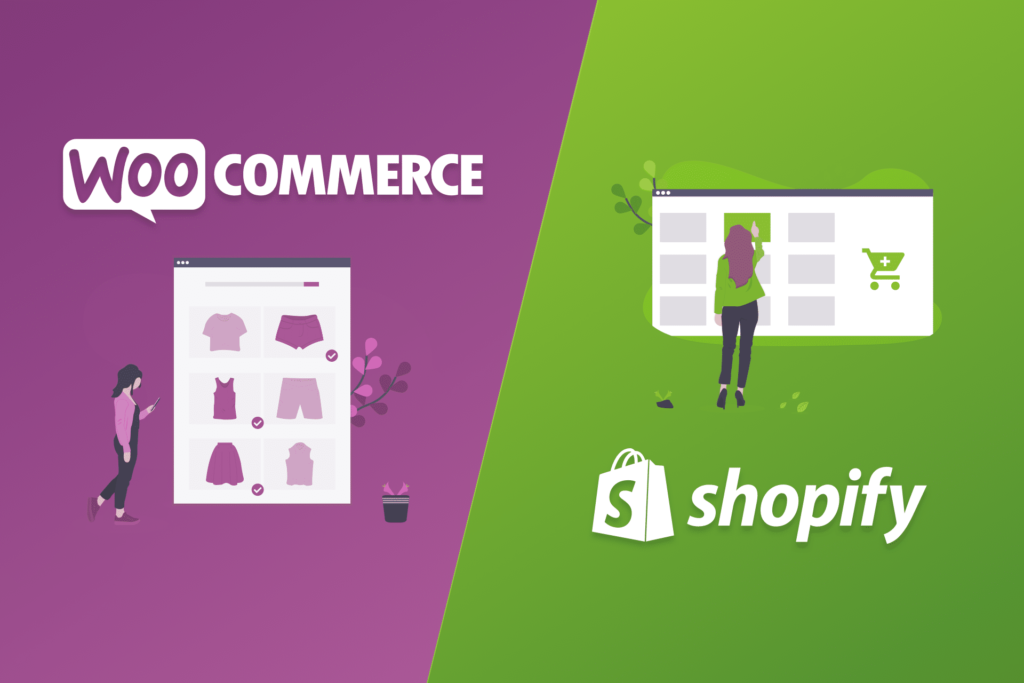Shopify and WooCommerce are two of the most popular platforms to sell online with.
They may seem to achieve the same purpose at first glance, and you’re not wrong with that.
However, as we delve deeper into this you’ll be able to distinguish that these are indeed two very different platforms serving different functions.
Before we begin this, I strongly advise you to have a list of principles you have when it comes to running YOUR business. Begin by asking: What do you value most?
Security, flexibility and privacy? Or Ease of use, managed services, and quick set up?
In a simple sense, WooCommerce is to Android as Shopify is to iOS.
Do you like paying more for a convenience, which also means losing some control, or do you prefer having complete flexibility and higher ownership?
Closed source vs Open source
Shopify is a closed source Software as a Service (SaaS)
With most SaaS, you get a completely managed system (from hardware to software) but the software is managed by Shopify and you won’t have access to the underlying code (except the areas they give you access to, like your theme). Any changes to the functionality of Shopify’s backend is done via third-party apps, which we’ll get to in a bit.
You may open tickets with the customer support team who will help you with what you need. This is, of course, provided that your problem is within scope of what the customer support team can offer.
Complicated tickets may be tagged as wontfix or backlogged, depending on Shopify’s internal priorities.
As a cloud service, your store is owned completely by Shopify and they reserve the rights to shut down your store should they deem it so, and there has been, unfortunately, several case of this happening and increasing in trend.
While some may argue that these people who have their accounts banned are due to them selling something suspiciously illegal, we should stop to ponder – what if the platform THINKS my store is suspicious when it clearly isn’t?
A simple search on your favourite search engine like Google should show some examples of this happening.
WooCommerce is an open source software.
This means you’ll have the entire codebase (including the front end and the backend) available to you and your developers. This allows you unlimited customisation of your code (though we’d recommend limiting customisation unless you have the budget for it).
Nevertheless, the software is flexible and should you have a problem you need fixed, it’s an option that’s completely within your control to do so.
The downside, though, is you’ll need hardware to host it and the owner is responsible for any support issues. Fortunately, there are many <link>services</link> that can help you manage a WooCommerce store, while giving you full control of the software and hardware, should you require it. It’s a very handy option in situations where you would prefer full sovereignty over your software and hardware.
We offer managed hosting on WooCommerce stores so we can function just like Shopify’s customer support while giving you complete ownership of your software. Of course, we’re more responsive to your needs than a large corporation like Shopify.
Subscription vs Investment
A Shopify store is kind of like a subscription. You pay as you go. As your revenue scales, your fees with Shopify and its app ecosystem also scales. The plus-side is, you won’t have to invest a lot in your store and is a good way to get your feet wet without committing too seriously.
A WooCommerce store is an investment in your business and brand. With some minimal upfront fees, your store scales without any significant additional expense with regards to functionality.
For WooCommerce , you may also want to look at our breakeven article to understand what it means to build a scalable and profitable store.
Additional features and functionality
On Shopify, extra features like subscriptions, post purchase, bundles etc. are provided via third-party applications (usually subscription based SaaS’s) that scale depending on your revenue. Functionality of these plugins is, as with most SaaS’s, fixed to what they deem important. You won’t have access to the code, but you do get customer support.
On WooCommerce , these features can be purchased as plugins and you completely own the code to it. It can usually be a higher investment upfront, but always pays itself off when you begin scaling, since the use of these plugins do not take a cut from your sales. If you need changes to the plugin’s code and functionality, it’s possible at any time with a skilled developer.
Security
Both Shopify and WooCommerce take security seriously and vulnerabilities are often patched quickly.
With WooCommerce , the responsibility is on the hosting manager to ensure that the software is up-to-date and the server is well secured.
An often overlooked layer of security is in the continuity of the store. Cloud providers like Shopify have full control over their stores and is often not immune to a bad actor within a larger organisation. They have measures to prevent it but there are a lot more moving parts to oversee. They could also opt to shut down a store first if they deem it to be violating policies, and then re-approve later.
With WooCommerce stores, the owner has full responsibility over who has access to the software and hardware. They could choose which parties to provide access to.
Conclusion
The choice between Shopify and WooCommerce really depends on your business model and your risk appetite.
Some businesses prefer not to focus on the store, and more on the creatives, while others prefer to tweak everything they can about their store.
Some want to have a more tailored solution, some are happy with what is available. Others want to make the leap from beginner to pro.
With so many other solutions in mind, it can be overwhelming to find a solution that works best for you.
If you’d like for us to help you make up your mind more closely on whether to choose Shopify or WooCommerce, we can help you find the best eCommerce solution for your business.







